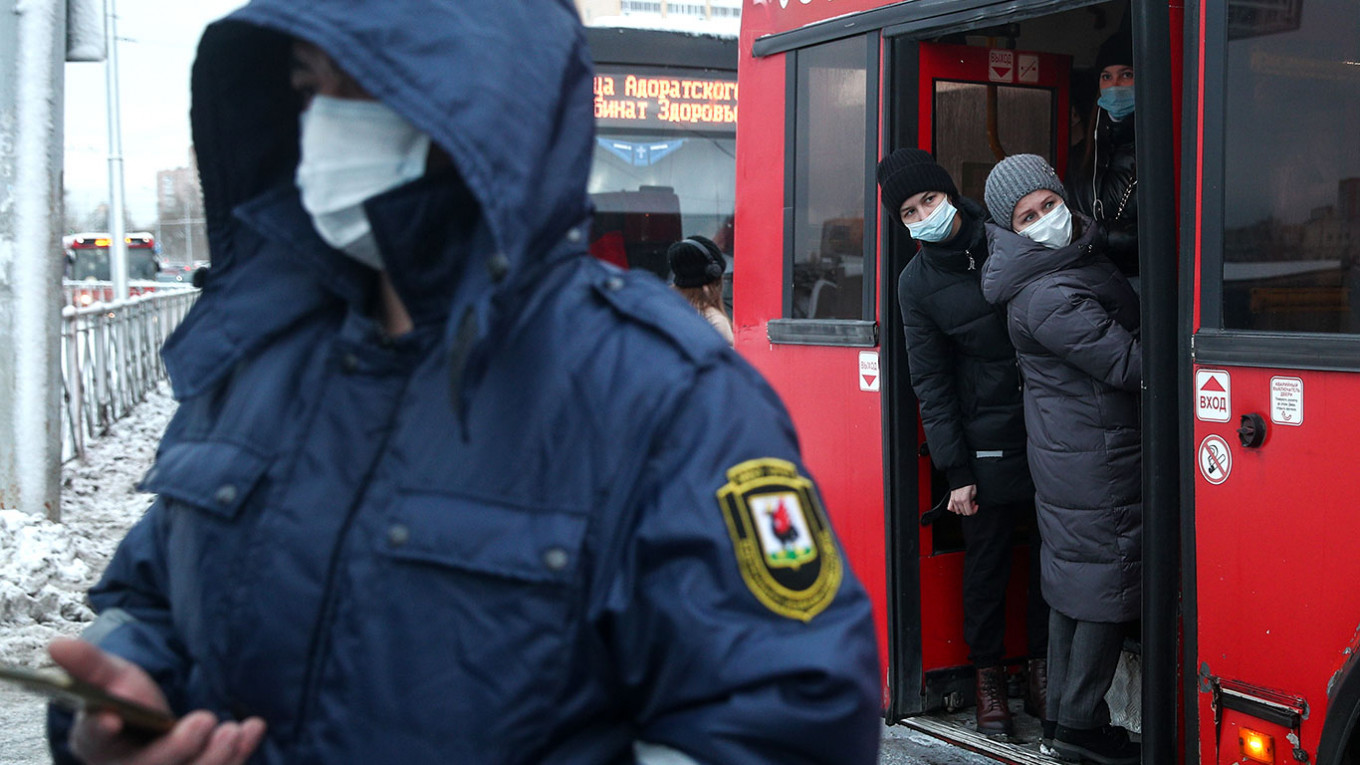More than 1,500 passengers were kicked off public transportation on the first day of digital Covid pass enforcement in the central Russian city of Kazan, the city's Mayor's Office said Monday.
The republic of Tatarstan was among the first Russian regions to mandate QR code passes for access to public places as the country battles the fourth and deadliest wave of the pandemic yet. The passes, which prove one's vaccination status, negative PCR test result or recent Covid-19 recovery, are an attempt to entice the vaccine-hesitant population to get the jab.
Scuffles erupted over the new rules, leading to significant delays, multiple arrests and hospitalizations of bus conductors in the city of 1.2 million.
Kazan’s transport authority said 786 passengers had been kicked off trams and trolleybuses and 126 off metro stations as of mid-Monday.
Police detained at least five people, the Metroelectrotrans Kazan company said on its social media page.
A number of bus conductors have been hospitalized after being beaten and pepper sprayed, the Kazan Mayor’s Office said.
Tatarstan’s Business Online news outlet also reported higher taxi fares and shortages in car-sharing services in connection with the QR requirements.
The Kremlin said Monday that hiccups with transport are inevitable as the public adjusts to the new rules and expressed hope that the issues will be resolved soon.
Kazan’s transportation crisis comes as Russian lawmakers race to mandate vaccine passports for public transport, restaurants and non-essential shops in a bid to combat deeply entrenched vaccine hesitancy.
Russia’s parliament is expected to adopt the QR code requirements, which will come into effect from Feb. 1 to June 1, 2022, next month.
A Message from The Moscow Times:
Dear readers,
We are facing unprecedented challenges. Russia's Prosecutor General's Office has designated The Moscow Times as an "undesirable" organization, criminalizing our work and putting our staff at risk of prosecution. This follows our earlier unjust labeling as a "foreign agent."
These actions are direct attempts to silence independent journalism in Russia. The authorities claim our work "discredits the decisions of the Russian leadership." We see things differently: we strive to provide accurate, unbiased reporting on Russia.
We, the journalists of The Moscow Times, refuse to be silenced. But to continue our work, we need your help.
Your support, no matter how small, makes a world of difference. If you can, please support us monthly starting from just $2. It's quick to set up, and every contribution makes a significant impact.
By supporting The Moscow Times, you're defending open, independent journalism in the face of repression. Thank you for standing with us.
Remind me later.






